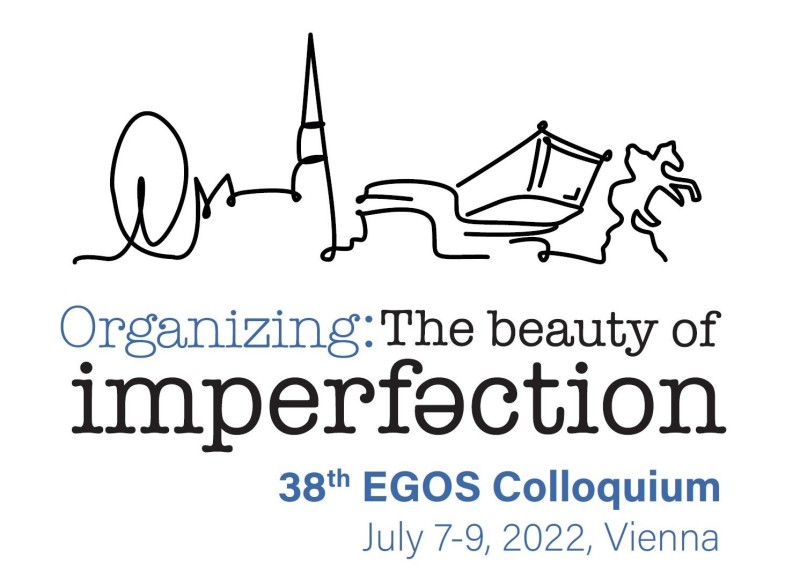PDW 03: Social Movements in Transformations towards Sustainability, Democracy and Equality
Call for Applications
Facilitators/Panellists:
Philip Balsiger,
Université de Neuchâtel, Switzerland
Donatella della Porta,
Scuola Normale Superiore, Italy
Mario Diani, University of Trento, Italy
Francesca Forno, University of Trento, Italy
Brayden
King, Northwestern University, USA
Ignasi Martí, ESADE Business School,
Spain
Michael Lounsbury, University of Alberta, Canada
Tal
Simons, Rotterdam School of Management, Netherlands
Purpose
The purpose of this PDW, hosted
by the EGOS Standing Working Group (SWG) 04 “Social Movements and Organizations”,
is to connect organizational and social movement scholars who study central transformation projects in contemporary societies.
In particular, the workshop will provide a forum to develop research on how social movements interact with other actors in
transformations towards sustainability, democracy and equality. Such transformations have attracted increased interest from
organizational scholars, for example in the context of research on “grand challenges”. We conceive of social movements broadly,
as collective projects that pursue transformation projects not only in the domain of formal politics and through traditional
repertoires of contention, such as protests and political campaigns, but that also entail cultural, social and economic forms
of action, ranging from prefigurative novel forms of organization to entrepreneurial and consumer action. The workshop invites
explorations of the sources of transformation projects in social realities and imaginaries, alternative forms of organizing,
and the challenges, failures and successes of movements in comprehensive transformation projects.
The starting
point of the PDW is the observation that contemporary societies are far from perfect and face common “grand challenges” that
put central needs and ideals at risk; and that some are attempting transformation projects to address the deficiencies and
imperfections embodied in grand challenges, such as through sustainability transitions, democratization projects, and transformations
towards social justice and greater equality. Contemporary social movements play a prominent role in animating and organizing
sustained political, cultural and economic action for such transformation projects (see, e.g., youth environmental movements,
Black Lives Matter or global indigenous rights movements). Movements sustain political campaigns but also promote new forms
of democratic voice and participation and prepare the ground for alternative forms of organizing production, exchange and
consumption (see, e.g., the emergence of moral markets for renewable energy, sustainable food, responsible investing or ethical
fashion.)
We also witness an expansion of types of activism that diverge from institutionalized repertoires,
such as street protest, boycotts and targeting campaigns, into ephemeral online campaigns but also long-term forms that involve
the creation of alternative organizations, collaboration networks and communities. Examples include the creation and enabling
of cooperatives and private regulatory standards, degrowth and post-growth organizations, common good organizations, social
enterprises, permaculture, transition towns or eco-villages. As such, movements are actively involved in what has been called
prefiguration – the attempt at constructing participatory, inclusive, democratic, egalitarian and environmentally sustainable
forms of organizing and thereby anticipate and enact moral values of alternative economies and societies that are not yet
realized at a broader scale. Collectively, this research points to the potential of social movements to envision alternative
institutions and support more fundamental transformations, not only through activism directed at state institutions but though
a broad range of pathways.
We call for submissions of working papers and research proposals on any topic
related to the workshop topic. With a focus on understanding important dynamics of contemporary societies, we are agnostic
to particular theoretical perspectives and methodological approaches. Instead, the workshop explores a plurality of approaches
that examine social movements involved in transformation projects towards sustainability, democracy and equality. We also
seek to facilitate conversations between more experienced scholars, early career scholars and PhD candidates.
Format
The
PDW’s central element is developmental feedback on the submitted research in roundtables facilitated by experienced scholars.
Each submission will receive two rounds of feedback with different participants (2 x 60 mins.).
In addition,
there will be one interactive panel discussion on social movements and societal transformations (45 mins.), as well as a facilitated
closing plenary on research directions and future convenings (45 mins.).
Application
Please submit – via the EGOS website – by April 30, 2022 a single document of application (.docx or .pdf file) that includes the following information:
Full contact information of all authors;
A 1-page single spaced summary of a proposed or current research project, (a) explaining the project, (b) its relation to the PDW theme, and (c) the type of developmental help most valuable to the author(s).


